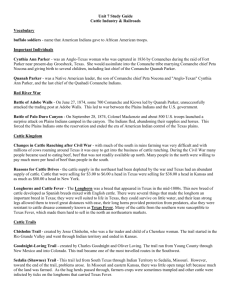Moving West Power Point
advertisement
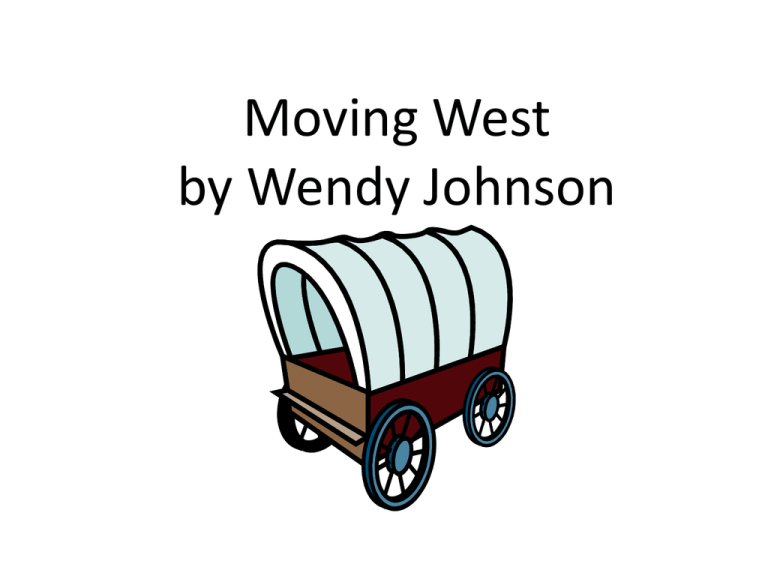
Moving West by Wendy Johnson Why did people move west? People moved west for many reasons including: 1. 2. 3. 4. 5. 6. 7. Searching for Gold Wanting more land Overcrowding in the cities Looking for jobs Wanting a fresh start Seeking to leave areas of discrimination Religious persecution After the Emancipation, former slaves were free to find other employment. Because of racial oppression (discrimination) and the shortage of jobs among black men back East, many who had cared for cattle began to move westward. They Became the Black Cowboys . . . • Some found work as ranch hands. As demand for beef grew, so did the demand for cowboys to drive Texas cattle north to the nearest train depot. Cowboys drove more than five million head of cattle north and east from Texas between 1866 and 1885, • Between 5,000 and 8,000 black cowboys, mostly ex-slaves, are believed to have ridden the cattle trails between 1866-1896, about a fourth of the total number of cowboys. • Cite: Garcia, Socorro, Ramon Gomez and Desiree Crawford.“ • Black Cowboys Rode the Trails Too." Borderlands 21 (2002-2003): 5. Borderlands. EPCC Libraries. De Angelis, Gina. "Black Cowboys“1998. • Once people arrived and settled they began jobs such as ranching and farming. • Many people had cattle on ranches and soon made a lot of money selling the beef. • Cattle trails became necessary to get the cows from one place to another to sell them. The Chisholm Trail The Chisholm Trail was a dirt trail used in the later 19th century to drive cattle overland from ranches in Texas to Kansas railheads. The trail stretched from southern Texas across the Red River, and on to Abilene, Kansas, where the cattle would be sold and shipped eastward. The trail is named for Jesse Chisholm who had built several trading posts in what is now western Oklahoma. He died in 1868, too soon to ever drive cattle on the trail. The Great Western Trail Following the Civil War, Texas found itself with many long horned cattle, but no markets. The demand for beef in the Northeast was high. The Great Western entered Oklahoma at Doan's Crossing south of Altus and exited Oklahoma at the Kansas border northwest of Buffalo, going on to Dodge City, Kansas. It ended in the heart of Texas. As the railroad developed through Texas and Oklahoma these cattle trails soon became unnecessary.
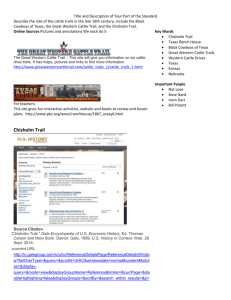
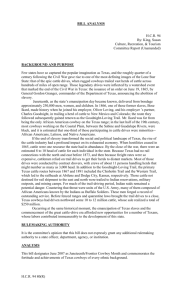
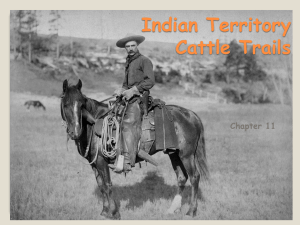
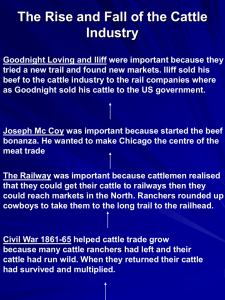
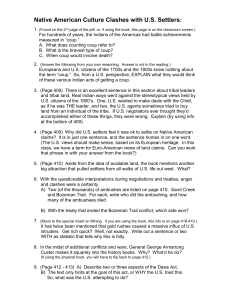
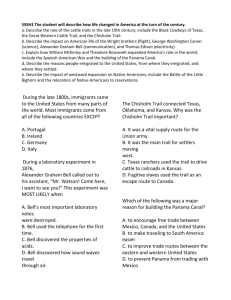
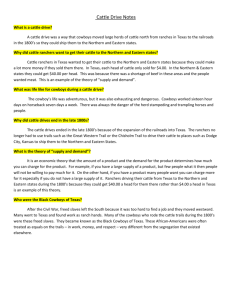
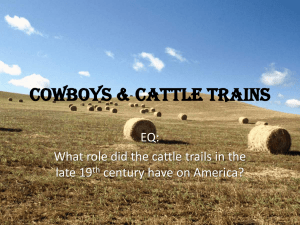
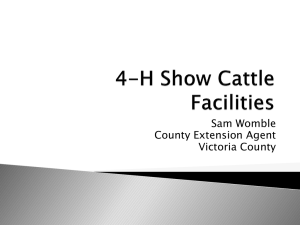
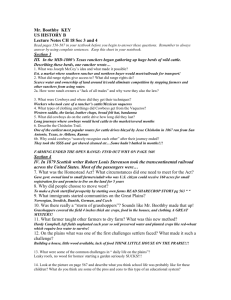

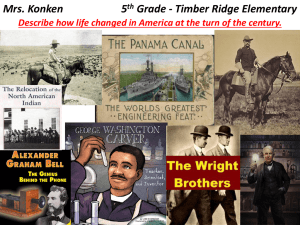
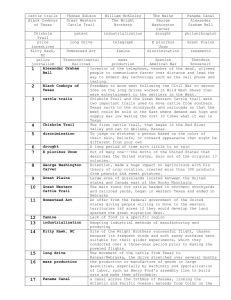
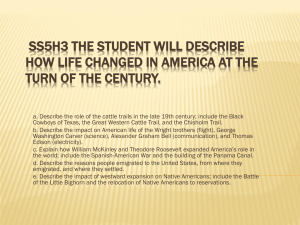
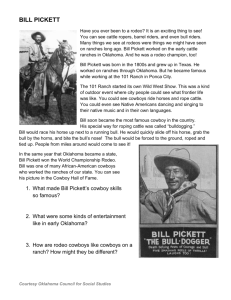
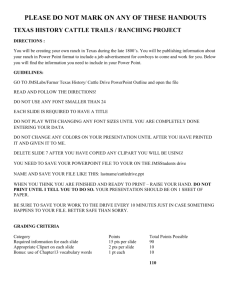
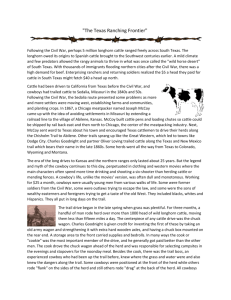
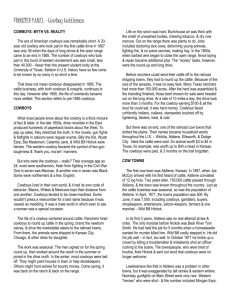
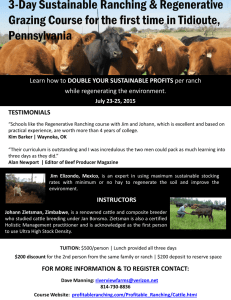
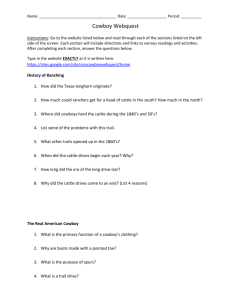
![The West at the Turn of the Century Background[1]](http://s2.studylib.net/store/data/005309077_2-9f76520e325a0937860ba2b010a095e6-300x300.png)
